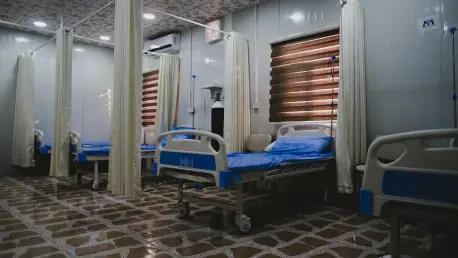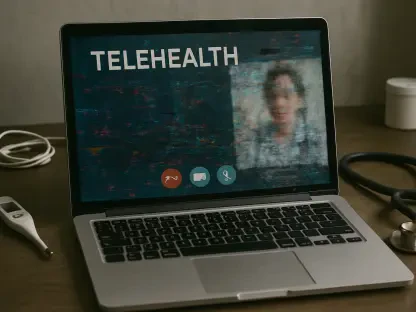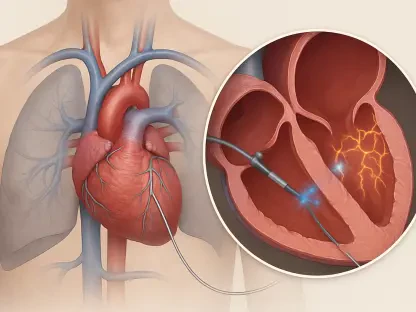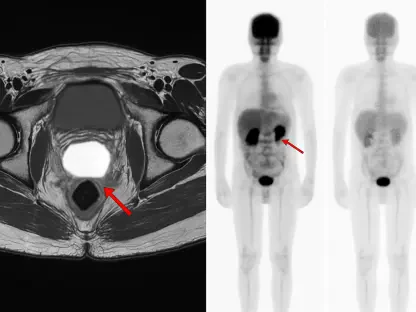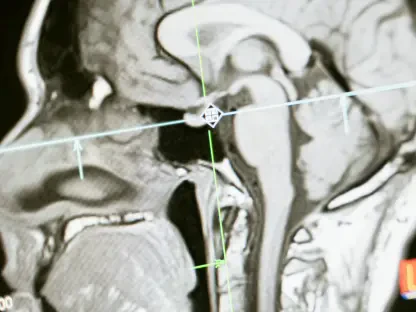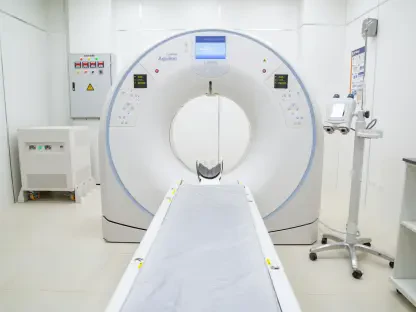In the bustling city of Abuja, located in Nigeria’s Federal Capital Territory (FCT), healthcare systems currently face growing concern due to a lapse in internet subscription payments by a key administrative body. This unforeseen delay has disrupted hospital operations and approvals, sparking unease among healthcare professionals and residents alike. The challenge primarily arises from the Office of the Mandate Secretary of Health Services & Environment under the Federal Capital Territory Administration (FCTA). This lapse has resulted in significant delays in medical services, driving fear of potential sanctions and endangering patient lives. Critics like Prof. Julius Oviawe and Dr. Adejoke Fashanu have openly criticized Mandate Secretary Dr. Adedolapo Fasawe for the oversight, emphasizing the urgent need for intervention from prominent government officials, including President Bola Ahmed Tinubu and FCT Minister Nyesom Wike. There’s mounting pressure for investigation and possibly suspension if these allegations hold. As Abuja grapples with this situation, the call for immediate correction threatens to overshadow efforts to bolster Nigeria’s healthcare reputation.
Critical Strain on Healthcare Operations
Abuja’s healthcare system relies heavily on efficient internet connectivity for seamless administration of its services. The recent delays in internet subscription payments have severely hampered operations within hospitals, affecting both administrative tasks and patient care. Critical procedures, such as obtaining necessary approvals for medical treatments, have encountered significant setbacks. Hospitals and clinics rely on stable internet connections to ensure quick access to medical records, coordination among healthcare providers, and timely delivery of life-saving services. However, the lapse caused by the office of the Mandate Secretary has hindered the smooth functioning of these processes, leading to delays in patient treatment and potential risks to patient safety. Moreover, the fear of sanctions among hospital staff and administrators is palpable as they navigate the challenges posed by these internet disruptions. The inefficient management of the crisis calls for immediate action to rectify the situation and restore confidence in Abuja’s healthcare infrastructure.
Amid the disruption, the city faces additional challenges exacerbating the healthcare system’s struggles. Insufficient resources, such as a lack of inspection vehicles, have been highlighted by healthcare professionals as contributing factors to the system’s inefficiency. Furthermore, there’s an ongoing exodus of skilled doctors overseas seeking better opportunities, leaving the local healthcare sector strained. This migration has intensified the need for efficient internet services, as hospitals require coordinated efforts to manage the remaining workforce effectively. The undermining of operational efficiency due to internet delays necessitates a thorough investigation into administrative lapses and potential corrective measures. Professionals like Dr. Fashanu have decried the systemic failures, urging for structured intervention to prevent further decline in Nigeria’s healthcare standing. The gravity of the situation demands immediate attention from government authorities to address these infrastructural shortcomings and reinforce Abuja’s healthcare system for the future.
Call for Government Intervention
Given the critical nature of this issue, prominent healthcare experts have been vocal in their demands for intervention at the highest levels of government. They emphasize the need for proactive measures from President Bola Ahmed Tinubu and FCT Minister Nyesom Wike to swiftly address the fallout of this administrative failure. The call for an in-depth investigation into the lapses within the Office of the Mandate Secretary is growing louder. Stakeholders propose potential suspensions if the allegations are substantiated, ensuring accountability and preventing recurrence. Such intervention is not merely about rectifying current failures but also about safeguarding Abuja’s healthcare infrastructure against future disruptions. These experts advocate for an overhaul of the existing processes, proposing adequate resource allocation and strategic planning to fortify the healthcare sector. While these measures demand governmental commitment, they also underscore the importance of public accountability and transparency in handling the situation.
The urgency for remedial actions has become a focal point in discussions about Abuja’s healthcare viability. Experts and healthcare professionals are actively pursuing strategies that would enhance resource allocation to critical areas of need. This renewed focus hopes to address longstanding infrastructural and systemic challenges, including the effective management of skilled personnel and technological essentials. The internet subscription delays have brought to light broader issues within Abuja’s healthcare system that can only be resolved through comprehensive governmental intervention. Health experts are urging a recalibration of policies to better favor operational efficiency and resilience against administrative lapses. To bolster Abuja’s healthcare infrastructure, an integrated approach combining governmental oversight, strategic planning, and dedicated funding is essential. As Abuja navigates these complexities, the imperative for swift action becomes apparent, promising a more stable healthcare environment for its residents.
Future Solutions for Healthcare Stability
In Abuja, Nigeria’s bustling capital, the healthcare system experiences turmoil due to a lapse in internet subscription payments by a vital administrative office. This unexpected disruption has caused significant operational chaos in hospitals, raising concerns among healthcare workers and citizens. The root of this issue traces back to the Office of the Mandate Secretary of Health Services & Environment under the Federal Capital Territory Administration (FCTA). As a result, there are notable delays in medical services, raising fears of potential penalties and jeopardizing patient care. Critics such as Prof. Julius Oviawe and Dr. Adejoke Fashanu have sharply criticized Mandate Secretary Dr. Adedolapo Fasawe’s oversight, underscoring the pressing need for prompt action from high-ranking government officials, including President Bola Ahmed Tinubu and FCT Minister Nyesom Wike. The growing pressure suggests an investigation and possible suspension could be forthcoming. As Abuja struggles with this crisis, the urgency to address it threatens to divert attention from efforts to enhance Nigeria’s healthcare reputation.
